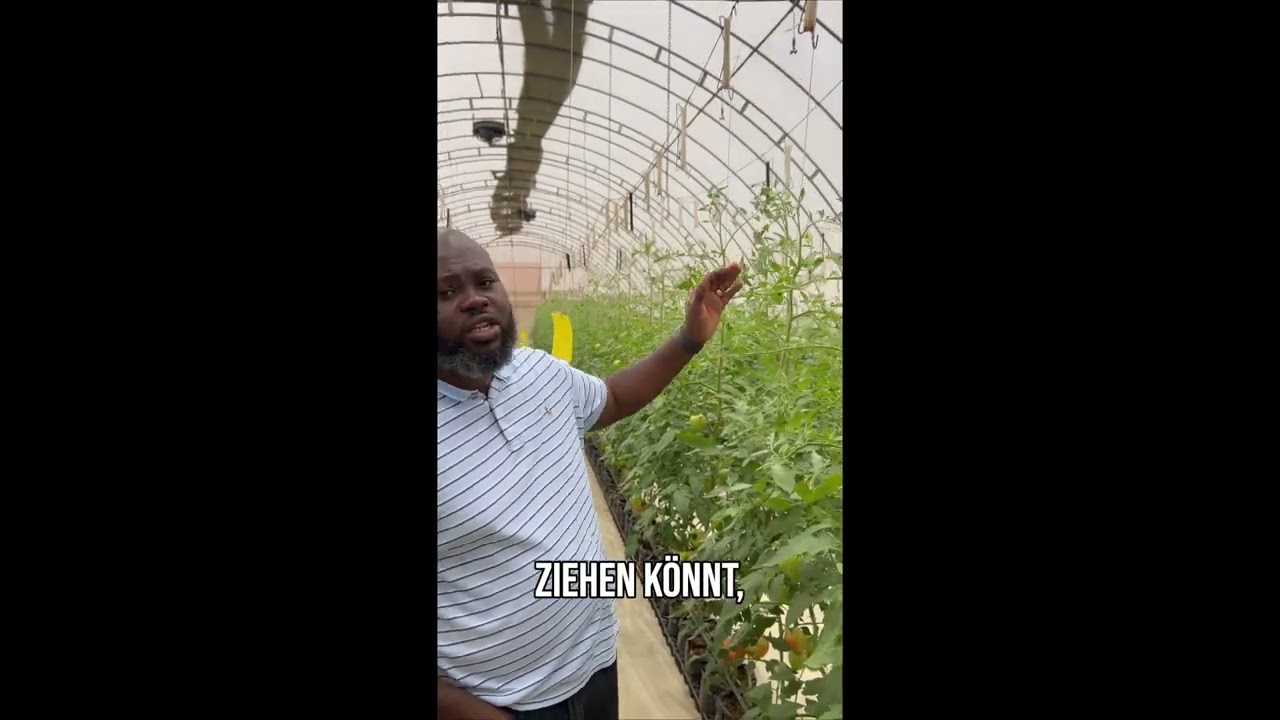
GROW GHANA
The Greenhouse and Farm Project
Project Background
For many years, we have been working towards a better future for children and families in Ghana and one of our most important focus areas has always been healthy nutrition.
What once started with small garden beds on our property in Kumasi has, over the years, grown into an essential part of our work.
Thanks to our success in cultivating our own crops, we were able to lease additional farmland to grow various staple foods such as maize, plantain, okra, and groundnuts.
This step was crucial in strengthening the food supply for the children at our Children’s Shelter in Ho and, later on, for our school feeding program, ensuring long-term food security.
Since the COVID pandemic, it has become even clearer how vital local and reliable food production is, both to reduce costs and to ensure a sustainable food supply.
However, rising prices, extreme weather conditions, and limited agricultural capacity make it necessary to find new and innovative solutions.
Project Overview – Our Path Toward Sustainable Nutrition
To ensure long-term food security, we are expanding our existing farm project to include modern greenhouse systems.
These will allow year-round cultivation of fresh vegetables, independent of drought or unpredictable weather conditions.
Our approach combines open-field farming on leased land with protected greenhouse production on our own property.
This creates a diverse and resilient system that provides both staple foods and vitamin-rich produce:
- Maize, sweet potatoes, yam, plantain, and cassava as stable staple crops
- Tomatoes, okra, peppers, cabbage, spinach, and garden eggs, grown in the greenhouse to supplement the diet with fresh vegetables
- Tilapia fish farming (Aquaponics in Ho): Nutrients from fish farming nourish the plants, and the water is reused within a closed-loop system
This combination not only ensures healthy meals but also creates income opportunities through the sale of surplus produce.
At the same time, the project serves as a learning center for sustainable agriculture, for children, staff members, and the local community alike.
Implementation
Sustainable, Participatory, and Model-Based
The expansion of our agricultural project is being carried out step by step and in a hands-on, practical manner:
-
- Expansion of cultivation areas
- Leasing of additional farmland
- Soil preparation using sustainable methods such as crop rotation and organic fertilization
- Construction of modern greenhouses
- Small greenhouses (approx. 50 m² – 150 m²) for training purposes and initial growing cycles
- Larger units covering several hundred square meters
- Use of solar energy
- To power operations and ensure water-efficient irrigation
- Integration of aquaponic systems
- Combining fish farming and vegetable cultivation to optimize water and nutrient use
- Training of local teams in operation and maintenance
- Hands-on capacity building for staff and community members
- Knowledge transfer on sustainable agriculture, marketing, and self-reliance
- Sustainability and monitoring
- Continuous monitoring of yields, nutritional impact, and financial performance
- Income from vegetable sales will help cover long-term operational costs
- Expansion of cultivation areas
Impact and Perspective
The Greenhouse and Farm Project creates a scalable model for sustainable agriculture in Ghana. It strengthens local food security, reduces costs, promotes environmental awareness, and provides educational opportunities.
From a single piece of land, more than food grows – the future grows.



